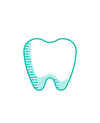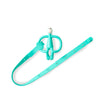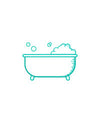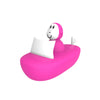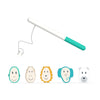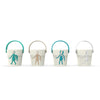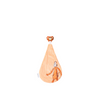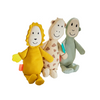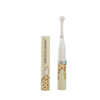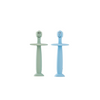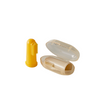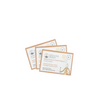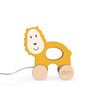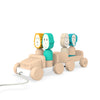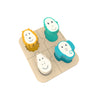When Do Babies Start Teething?
Your baby’s first tooth is one of those wonderful moments you experience as a parent. However, teething in general can be quite an ordeal. Some babies have very few problems while they’re teething, while others become fussy and difficult with the pain.
A question that is often asked by parents is “when will my baby start teething”. Yet, with most baby milestones - there isn’t a definitive answer and “normal” can cover quite a long period. Babies tend to do things in their own time.
When Will Most Babies Start Teething?
The majority of babies will start getting their first pearly whites when they are between four and seven months old. If they are still all gums by nine months, contact your Health Visitor and they’ll be able to give you advice on if you need to see a GP or dentist. There are certain medical conditions that can cause a baby to teeth late but these are quite rare.
Don’t panic though, some babies are over a year old when they get their first tooth, some are even born with them! The majority of children have a full set of teeth by their third birthday, regardless of when they started teething. If your baby has siblings that teethed early or late, then they may follow this pattern...
My Baby Is Teething Early - What Should I Do?
As we’ve mentioned, the timeline above is just a guide. Some babies can teeth very early, and it’s nothing to be worried about - it just means those fights with the toothbrush are going to start a bit sooner.
At three months, babies often start chewing on their fists and drooling, which parents often assume is their baby starting to teeth. Though these are generally the first signs, you might not see a tooth for a while yet.
The most common symptoms of teething are:
- Drooling, lots of it
- Rosy cheeks
- Fussiness and generally being in a bad mood
- Chewing on their fists or anything they can get hold of
- Ear pulling/rubbing
- Slight temperature. High temperatures are not caused by teething and you must seek medical advice for temperatures at 38 degrees or above
How Quickly Should My Baby’s Teeth Appear?
As we’ve already established, every baby does things on their own schedule. The first teeth to appear are often the bottom front teeth followed by the upper front teeth. From there, teeth can either come through in pairs or along one side of the mouth. There isn’t a right or wrong sequence. Some babies even experience multiple teeth coming through at the same time but this is not as common (but nothing to worry about).
How Can I Help My Baby Feel Better?
Teething can be a stressful time for you and your baby. You can feel helpless as they are going through so much discomfort. There are many things you can try to make your baby more comfortable.
- Massage their gums with a clean finger
- Give them something cool to put against their gums such as a chilled chew toy or spoon (never put any teething toy in the freezer)
- Teething powders or gel to soothe their gums
- Infant paracetamol for pain and fever
Don’t be tempted to use teething aids made with beads or wood as these can become very dangerous.
Now you know the basics on teething, you can sit back and wait for that beautiful smile to appear! For more tips on how to soothe a teething baby, visit our blog post 9 steps on what to do for a teething baby.

